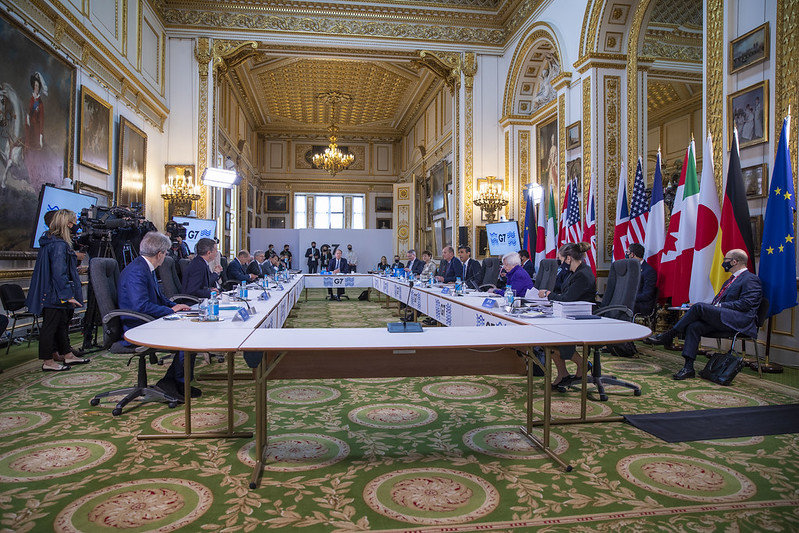The much-criticised reduction in the UK’s aid budget is another unforced error on the Government’s part; undermining UK influence as it tries to define a credible post-Brexit global role. Crucially it threatens to derail the Prime Minister’s personal goal of a successful outcome to the COP26 climate summit in Glasgow in November. To succeed the Prime Minister must mobilise the necessary G7 funding.
The Prime Minister has a lot resting on success at COP26. He has made it a defining feature of his premiership. While popular with the public and key to attracting younger voters, climate leadership is still not welcomed by all in his party in Parliament. Failure in Glasgow would not be lamented by everyone.
Climate negotiations can be mind-numbingly complex. Untangling the strategically vital from the operationally important in the noisy fog of commentary can be hard. Cutting through that fog, two essential conditions emerge for success in Glasgow. There must be a significant increase above the emissions reductions agreed in Paris in 2015, and there must be a substantial increase in G7 funding to emerging and vulnerable economies.
Critical countries like India, South Africa and Indonesia have all signalled a willingness to shift away from coal and grow their dynamic economies with renewable power. But this is impossible while they are shut out from global capital markets due to COVID debt burdens.
A good start has been made to meeting the first condition. The Prime Minister’s decision on an ambitious new target to reduce Britain’s emissions by 78% by 2035 is truly world-leading. It reinforced the momentum established by the Biden Climate Summit and the European Green Deal. This has encouraged other major nations to raise their ambitions and put increasing pressure on China to commit to a higher 2030 target.
Progress on meeting the second condition was already slow but has run into stronger headwinds from the pandemic. The Paris Agreement was built on a promise by the rich nations to move $100 billion/year to help with clean energy transitions and adapting to worsening climate impacts. This promise is now inextricably entangled with financing the rapid rollout of vaccines and helping economies badly hit by both climate change and COVID-19 to recover.
To succeed in Glasgow the Prime Minister must mobilise the necessary funding at the G7 in Cornwall to accelerate vaccination rates and promote green recoveries. Critical countries like India, South Africa and Indonesia have all signalled a willingness to shift away from coal and grow their dynamic economies with renewable power. But this is impossible while they are shut out from global capital markets due to COVID-19 debt burdens.
The Paris Agreement was built on a promise by the rich nations to move $100 billion/year to help with clean energy transitions and adapting to worsening climate impacts. This promise is now inextricably entangled with financing the rapid rollout of vaccines and helping economies badly hit by both climate change and COVID to recover.
The G7 needs respond to these extraordinary times by aligning all the tools in their financial armoury in innovative ways.
First, the Prime Minister must restore the UK aid budget to be in a position to push other G7 nations to make their aid spend, lending and debt management work together to help deal with the triple crises of health, climate and economic recovery.
Second, the G7 must use all their influence to reform how the IMF, the World Bank and other multilateral development banks deal with climate change. Primarily to prevent them from investing billions of public dollars in fossil fuels, which would make the triple crisis worse. More fundamentally, to commit to supporting these institutions with the additional financial firepower to rapidly scale up global climate investment.
Third, the G7 should use their regulatory and supervisory muscle to ensure that private capital is pulling its full weight in dealing with the triple crisis. Their Central Banks should develop net zero strategies and corporate climate risk disclosure must be made mandatory.
This is a big ask at a big moment. It is also the first real test of Britain’s diplomatic clout post-Brexit. Restoring the UK aid budget is crucial to building the bigger financial foundations needed to deliver COP26. It is hard to ask others to do more when you are doing less.


